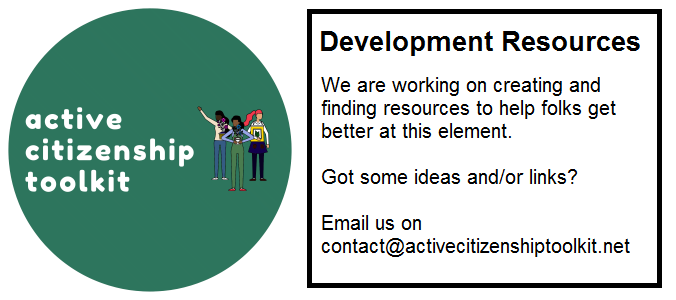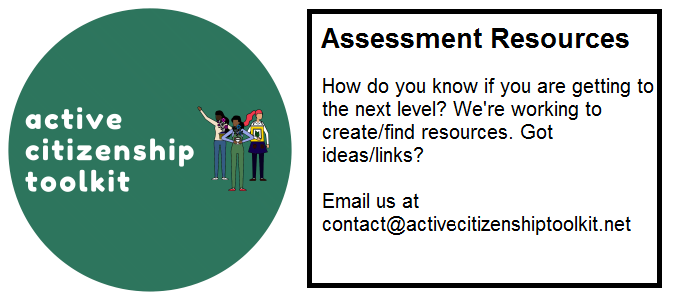Element Descriptor
Meetings, if they ever resume in the post-coronavirus world – require more than the hiring of a room and the scribbling of an agenda/putting chairs in a circle. In the absence of good facilitation, meetings will often discuss the wrong things in the wrong ways, allowing the loudest to dominate and the quiet (and often smarter) to flee – mentally and then physically. The waste of talent and potential is heartbreaking and unsustainable.
Level descriptors
| Novice | Practitioner | Expert | Ninja |
|---|---|---|---|
| You can facilitate a basic but functional meeting around a topic/set of topics that will enable the right questions to be surfaced and allow the quieter/less confident to put forward key points. The meeting has a chance of ending on time, and leaving most folks (but not the usually-dominant) happy that they came. | You can facilitate a more detailed (but not unnecessarily so) meeting which will “work” for different sized groups of people who know each other not well/not al all, with mechanisms to prevent domination, derailing and disruption. The meetings are not always ‘enjoyable’, but this is a social movement we’re doing here, right, not a club? | You can facilitate, confidently, a meeting or sequence of meetings that will help groups make difficult and consequential decisions, or discuss potentially homicide-inducing questions and come to clear and thought-through conclusions/decisions/positions, in the face of deliberate and unconscious resistance. And finish on time. | The UN has you on speed dial, because your meetings – which use tools you have invented, honed, recombinated – are The Shit. They are almost disruption proof (but never misunderestimate a talented disruport) and a joy to facilitate because they “work.” You regularly innovate, not for the sake of innovation, but in order to not be complacent , and to create new ways that people can meet to achieve things. |
Element Overview Essay
This is a draft. If something doesn’t make sense, or you see typos, or if you have further ideas, please email us on contact@activecitizenshiptoolkit.net
First thing to say is that meetings as we need them, may not come back because people won’t be so up for getting on public transport to go and sit in a relatively small room with a load of other people, even if everyone is wearing a mask, and frankly being bored. So the whole skill of facilitating face-to-face meetings may no longer be particularly necessary.
So causes of facilitating badly in face-to-face meetings.
Basically people often don’t understand that facilitation is distinct from chairing a meeting, even if there is some overlap.
Facilitators are often thrown in unprepared at the last minute without a clear sense of what it is they’re supposed to be facilitating..
What is the purpose of the meeting?
So the consequences of bad facilitation, in face-to-face meetings are that
- the loudest voices will be heard the most, and those tend to belong to men, old white men who have very set and strong opinions,
- the quieter voices which might have very useful other information and perspectives, get either heard tokenistically or not heard at all,
- this diminishes the meeting’s usefulness to the group or groups that held it as a strategic or tactical and strategic loss.
- It leaves the people who spoke the least who wanted to speak more demoralised and feeling, patronised and condescended and as if they’re just there to make up the warm bodies, Other people will see that people are not stupid.
- And it has a real reputational risk, especially if the meeting becomes fractious or runs over time.
So how to do meeting facilitation? It’s an art it’s not a science, but what you’re looking at is
- being prepared.
- Knowing what the overarching goal or goals or aims are.
- Having someone who helps you keep an eye on time on who’s going to speak next.
- Having the authority to go into breakout groups. spontaneously, for example.
And perhaps crucially, if you feel that for whatever reason, you are not the suitable person to facilitate a portion of a meeting, then stepping back so if it’s a topic where you’re supposed to be facilitating a discussion or a decision, and you have really strong opinions about the right course of action, are you really the right person to be facilitating unless you have superhuman levels of self control? And in any case, if anyone else knows that you have strong opinions, you will not be perceived as a fair dealer. It’s like you know, they don’t let referees in football matches bet on the outcome, since they will be a supporter of a given team.
There’s a lot to say about facilitation of face-to-face meetings. But that will do for now
Development Resources

Assessment Resources

